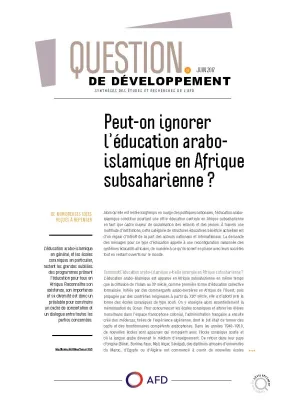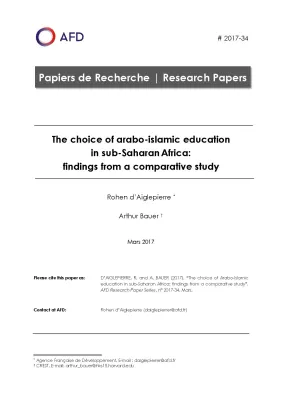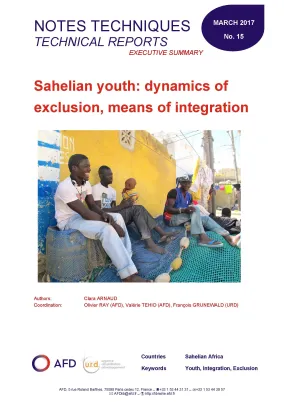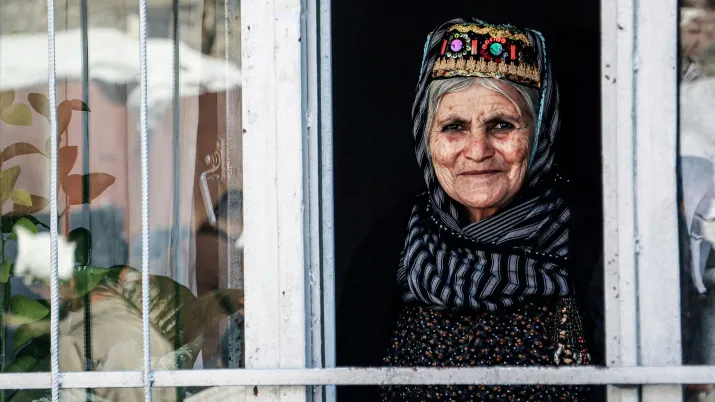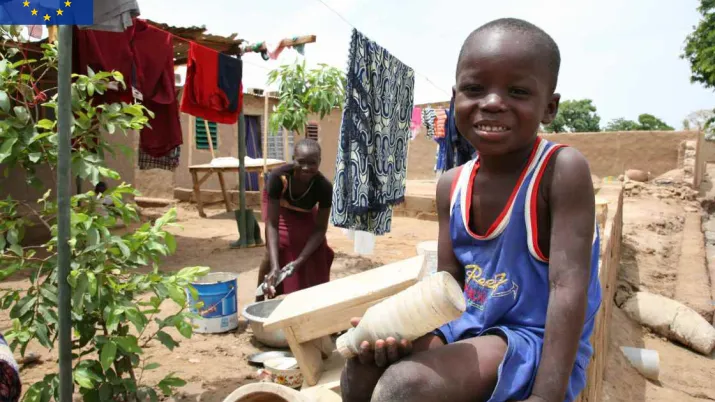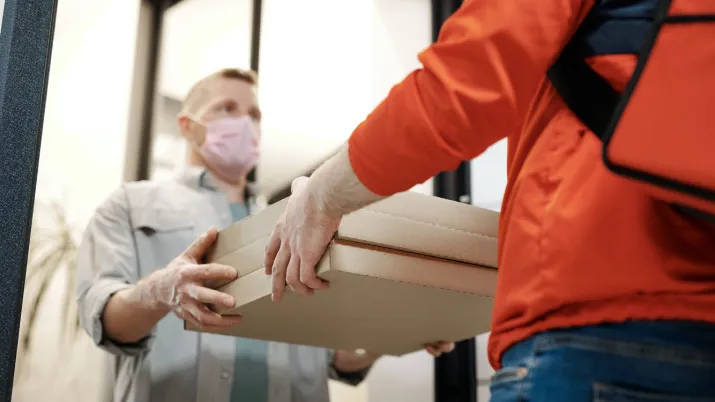Share the page
Understanding Arabo-Islamic Education in the Sahel
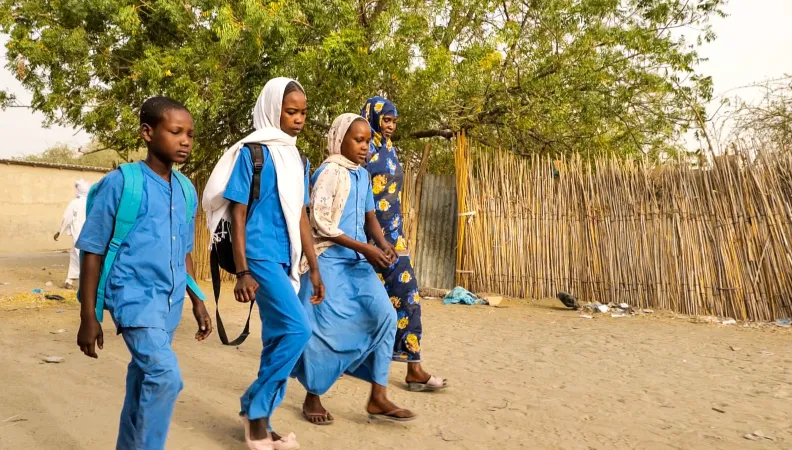
-
Project start date
-
2019Status
Completed
-
Project end date
-
2021
-
AFD financing amount
-
149 380 €
-
Country and region
-
Partners
-
Research program
Arab-Islamic education in the Sahel remains poorly understood, despite being a key component for grasping and managing the region’s education systems. This research project, entrusted to IRD, aims to improve knowledge about this educational offering, its learners, and how it is addressed by public policies—ultimately to inform the decisions of policymakers in the Sahel region.
Context
While significant progress has been made in access to education in the Sahel since the 2000s, major challenges remain in terms of access, quality of teaching, and reducing inequalities—particularly between girls and boys, and between urban and rural areas.
In this context, many school-age children are educated through religious-based, mostly Arabic-language education systems rooted in Islam. Deeply embedded in many societies, this so-called “Arab-Islamic” education is highly diverse. It spans a continuum from highly informal, family-based units focused exclusively on religious instruction, to more formal institutions that are partially or fully integrated into public education systems, as well as a range of evolving, intermediate forms.
This widespread educational reality cannot be ignored in the design of local public education policies.
READ IN THE CONVERSATION
Arab-Islamic education in Sub-Saharan Africa: going beyond clichés to build the future
Objectives
The purpose of this study is to contribute to the production of updated and relevant knowledge on Arab-Islamic education in the Sahel—a complex and deeply rooted phenomenon that is widespread across Sahelian societies but remains largely overlooked by both research and public policy. The project also aims to inform policymakers in Sahelian countries, as well as international donors, by providing them with the information needed to design and conduct education policies.
A nuanced understanding of the various forms of arabo-Islamic education is a prerequisite for any intervention—whether to regulate the most controversial practices, to integrate this educational offering into national education and vocational training policies, or to support a system that may prove particularly relevant in times of crisis, especially in the context of insecurity.
Method
As the first large-scale study of arabo-Islamic education across six Sahelian countries, this research project was conducted by a multidisciplinary and multinational research team, coordinated by Dr. Hamidou Dia (IRD).
The project relied on extensive inventories—including inventories of existing research, grey literature, educational institutions, quantitative data, and press articles—combined with field surveys and interviews with key actors involved in Arab-Islamic education. A series of research workshops and stakeholder dialogues helped discuss research findings, feeding into the development of country reports and a regional synthesis (available in the section below). All reports followed a common framework to allow for cross-country comparisons and the identification of transnational or regional trends.
Results
The study confirms the dynamism of Arab-Islamic education in the Sahel, shown in particular by the renewal of audiences. In Chad and Niger, more than 50% of students are girls, and the presence of the middle classes has increased. The re-emergence of Arab-Islamic universities in some countries (notably in Niger and Mali) also shows this dynamism.
The study highlights the diversity of Arab-Islamic education funding resources, which vary widely from country to country and from school to school. Depending on the context, the importance of resources coming from abroad gives a significant weight to foreign actors and dynamics in the evolution of Arab-Islamic education.
The study also shows that the positioning of this offer vis-à-vis the State varies according to the actors, schools of thought, forms of intervention and methods of financing. Depending on the type of educational offer, the place of residence or the profiles of the pupils, Arab-Islamic education can either be complementary to or a substitute for classical education, which is the case especially in regions where public services are destabilized.
You can find below the various research papers related to this research program:
Research findings
This study confirms the existence of a plural and evolutionary educational offer, with the emergence, in recent decades, of new formats, sometimes pushing towards a modernization of education, sometimes towards a return to traditions, with tensions between actors and/or important intra-national divisions around religious and linguistic issues.
The positioning of this offer vis-à-vis the State and the institutions varies. In some countries, attempts at reform by the State ended up in crystallizing tensions and confirmed the duality of the system. Nevertheless, the growth and dynamism of this educational offer in the region calls for a deeper exploration of the possibilities of establishing bridges with secular education.
Highlighting the diversity of this educational offer and the actors who carry it, this research project helped to understand better Arab-Islamic education and to guide the decision-making of AFD, its Sahelian partners or donors.
Contacts
- Dr Hamidou Dia, socio-anthropologist, research officer at IRD
- Linda Zanfini, research officer at AFD
Read also
Discover other research projects
Digital labour platforms in Buenos Aires: Working conditions and gender inequality
Completed
2019 - 2022

